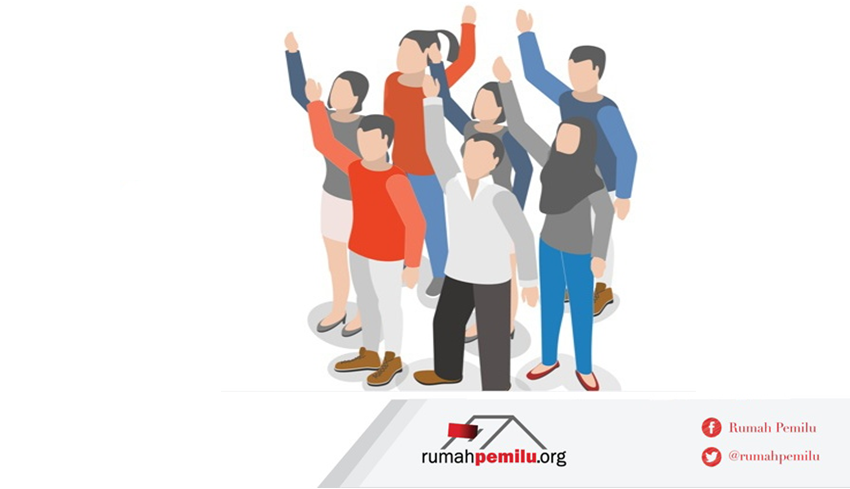Indonesia has been implemented open-list proportional system in three elections: 2004, 2009, and 2014. In 2004, the system was half-open, while in 2009 and 2014 was fully open-list. The high percentage of voters and valid votes show that the system is well-understood both by participants (political parties and candidates) and voters. However, on the other hand, many people also criticize this system because it causes more money politics and decreasing the quality of candidates. Rumah Pemilu interviews Khoirunnisa Agustyati, a researcher for the Association for Elections andliti Democracy (Perludem), about what went wrong with the system at her office in Gandaria, Jakarta (04/30).
Many people criticize open-list proportional system. What went wrong?
Every election system has its own strengths and weaknesses. We need to choose a system that is compatible with our needs. And in the implementation process there are preconditions that should be met in order to success. Such preconditions are not fulfilled in our open-list system.
What preconditions?
One of the many preconditions is that the candidates should be listed alphabetically. So far, candidates are listed based on candidate’s number, from 1, 2, 3, and so on. These numbers represent the oligarchy within political party. This is ironic because oligarchy is the exact problem we wished to tackle with open-list system.
Political parties also don’t have inclusive recruitment mechanism. It’s garbage in, garbage out. We will always have bad elected politicians if political parties always nominate bad candidates.
In addition, our current electoral legal framework does not strictly regulate the campaign finance activity. Many people consider electoral contest in open-list proportional system as a kind of a laissez faire election, where candidates with more financial resources can do whatever they like.
Why do we choose open-list system in the first place? And why do we persistently hold on to it?
In 2004, we use semi open-list system where voters are able to directly choose the candidate but the candidates are listed according to preference of political party. Only candidate with 100 percent of voters divisor index (VDI) is eligible to be elected. Those who fail to receive 100 percent VDI will receive votes according to the candidate’s number. In 2009, the 100 percent of VDI requirement was reduced to 30 percent. If there are more than one candidate receive more than 30 percent of VDI, the votes will be allocated based on candidate’s number. This mechanism was disputed and brought to the Constitutional Court (MK). MK revoked the mechanism because it was considered as unfair. Since then, we’ve been allocating votes among candidates based on the majority of votes received during the election.
In 2014, there are many people demanded the government to revert to closed-list system to reduce the practice of money politics. Some of the political parties which support this idea are: PDIP, PKB, and PKS. However, due to some lobbying by other parties, the idea was rejected by the government.
What are the strengths of the open-list system?
In open-list system, we, the voters, are allowed to directly choose individual candidate, not political party. The elected politicians are directly chosen by voters, not by the leaders of the party. As the consequence, the elected politicians are directly accountable to voters.
But many voters say open-list system has made the ballot more complicated…
Every system has its own strengths and weaknesses. We chose open-list system in the first place because we want to directly chose our candidate. We don’t want to blindly electing our public officials.
The total percentage of voters in 2014 Legislative Election is increasing from previously 70 percent to 75 percent. Is this because of hard work of the Election Commission or because individual candidates attract voters more?
In 2009 we also implement open-list system, but the number of voters are fewer than in 2004. I think the increase of voters in 2014 is caused by the fact that we are getting familiar with open-list system.
And I also think there are more and more candidates starting to realize that they have to approach their voters to gain more votes.
In addition, the Election Commission has started the initiative to publish candidates’ CV online. This shows how our Election Commission has been very accommodating and that they begin to realize the importance of transparency in elections.
 Rumah Pemilu Indonesia Election Portal
Rumah Pemilu Indonesia Election Portal



